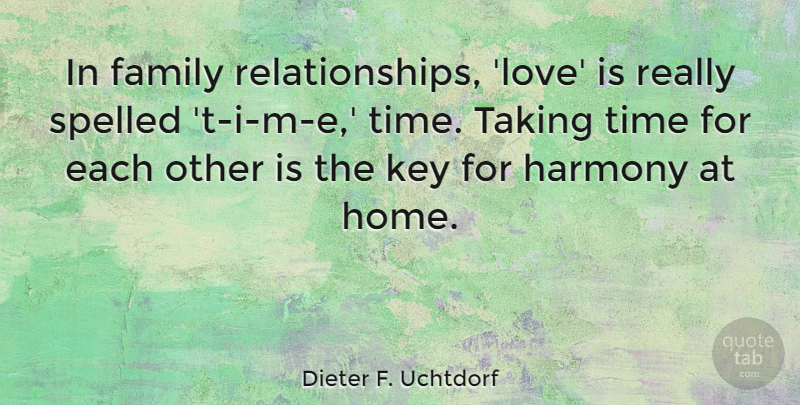
When a couple marries, it is not just between them, they also "marry" each other's family. Not only is there a newly created couple, but there are newly created in-laws as well. Another factor to consider is that each spouse brings to the marriage certain family rules: spoken and unspoken. These rules need to be acknowledged, understood, and discussed by the couple so they can decide, together, how those rules will impact them, or if they want to change any of the rules in their new family. Family Life professors James M. Harper and Susanne Frost Olsen about unspoken rules wrote, "Examples of unspoken rules include how family members handle conflict, who is involved in making decisions, how emotionally expressive family members can comfortably be, how humor is demonstrated in the family, or what topics should not be discussed. The clearer the family rules are, the better, because new sons- or daughters-in-law can't follow rules if they don't understand them," (Helping and Healing Our Families, Chapter 37 "Creating Healthy Ties with In-Laws and Extended Families"). My husband is one of nine children. When I first met his family, after we were engaged, we were having dinner with the whole family. The kitchen table was round and it had a lazy Susan center so the food could be wheeled to each diner. The family rule, my husband explained to me, was that the dad was the only one to turn the wheel for the first go around. If you missed an item, you would have to wait until it made its way around and then it was up for grabs by anyone. Often, there wasn't much left afterword to choose from. I came from a home where we asked for the dishes to be passed to each other as we desired. So, if it were not for my husband watching out for me, I would have missed out on dinner that evening.
Obviously, this family rule was a mild one as far as the potential it had for creating conflict between my husband and I. In fact, it didn't create any conflict. But, when it comes to values, how to discipline children, which relatives to visit on special occasions, or what traditions to incorporate, conflict can and will arise until a couple can work through deciding what to do about those rules and traditions. To complicate matters, sometimes in-laws put undue pressure on their newly married children to adapt their same family practices as well as expecting the same level of home involvement as before marriage. It can be difficult to share your child with other people, but in-laws need to recognize that a newly married couple is a family of their own now and they should be allowed to make family decisions for themselves that will nurture that couple's relationship with each other. My husband and I spent our first year and a half of marriage in residence near my parents in Texas while his were in Utah. We had our first child while living in Texas. Because my mother taught me that my family was with my husband and our children now, my parents waited for invitations to be involved in our new family. They expressed their love and concern for us and they spoiled their new grandbaby, but they did not impose their will upon us as we began forming our new family. When our daughter was five months old we moved to Utah. My husband's father found a job opportunity for us and helped us make the move. We were happy because we both wanted to live in Utah to raise our family. Utah was home to both of us. But, that was when I had to make some adjustments to being away from my family and near his. Some of those adjustments were made more difficult by my perspectives, but some were by his parents' perspectives. Unlike my parents, they continued to try to "parent" us. Even my husband eventually wearied of their "helpfulness."Harper and Frost Olsen say, "Gloria Horsley listed five things that every parent-in-law should avoid. They are giving advice, criticizing, pinning down children-in-law as to the specific reasons they are missing a family event, criticizing or taking over the disciplining of grandchildren, trying to control everyone and everything including children's beliefs, and unclear and indirect family communication," (Helping and Healing Our Families, Chapter 37 "Creating Healthy Ties with In-Laws and Extended Families"). My in-laws fell trap to many of these and conflict was high for a number of years. But, we did eventually develop loving and supportive relationships. Partly because we genuinely loved them and each other and we talked about our own expectations as a couple and then shared these with them. Sometimes there were hurt feelings, but none of ever gave up because we all believe in an eternal family and we know we were sent here to learn to love one another. At the time, it helped that we lived a couple of hours away, so we had plenty of time apart but we were also close enough to choose to spend time together, which we did on a regular basis.
There were a couple of beneficial practices that my in-laws and I did that helped us to create happy relationships with each other. First of all, I asked if I could call them Mom and Dad. Harper and Frost Olsen make this comment, "While awkward at first, stronger bonds are formed when in-law children call their in-law parents Dad and Mom and get past the idea that this somehow compromises their loyalty to their own parents," (Helping and Healing Our Families, Chapter 37 "Creating Healthy Ties with In-Laws and Extended Families"). I had no qualms calling my in-laws Mom and Dad because my dad called his widowed mother-in-law, Mother. Grandma had told me how much she appreciated the love and respect my father demonstrated to her by doing so. I did have to make it clear, however, that I was not placing myself in a child's role. I still expected to be treated as an adult and to trust their son and I to learn for ourselves to trust in and lean on the guidance of the Holy Spirit.
The other practice was to spend quality time with each of my parents-in-law. I often went shopping with my mother-in-law and I played games or had late-night discussions with my father-in-law. Those times afforded us opportunities to really get to know one another and to form personal and happy memories together. I could talk with my father-in-law about anything from politics to gospel subjects. My mother-in-law and I talked about raising children, serving missions with our husbands someday, and sharing our love for and testimonies of the gospel. It was those times that helped us overcome any hurt feelings that may have occurred from misunderstandings. Both of my parents-in-law are now deceased, but shortly before my mother-in-law passed away I was able to tell her that I had learned to, not only love her, but really like her.

















